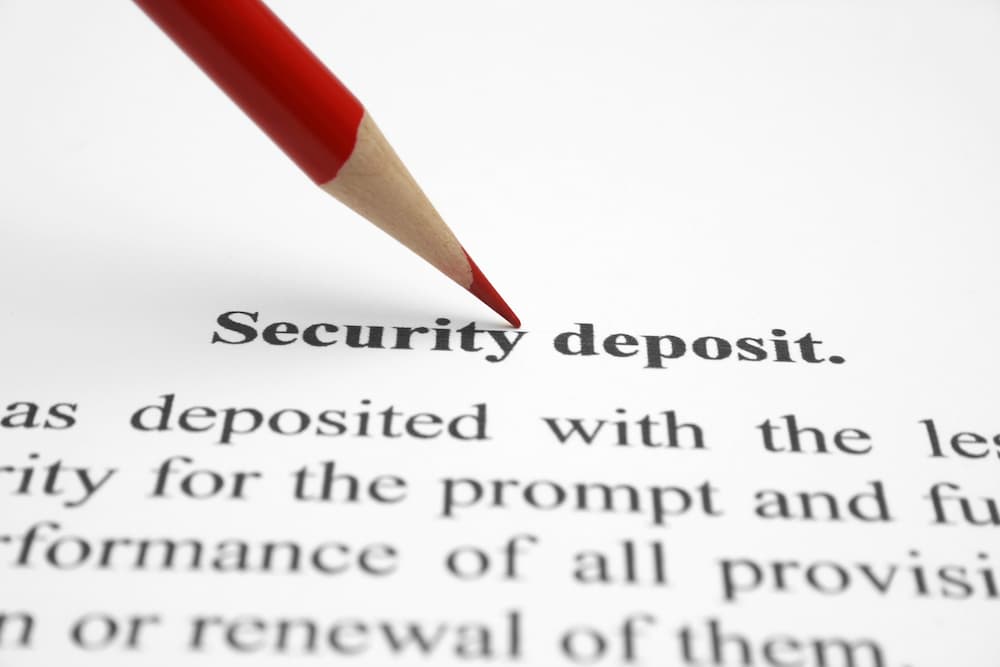
When considering the expenses of moving into a new rental, one thing to remember is the security deposit. You’ll be expected to pay the deposit before moving in, so factor that into your budget. But what is a security deposit, and how does it work? The experts at Anderson Communities are here to answer your questions. Here’s all you need to know about security deposits and what you can do to get your money back at the end of your lease.
What Exactly is a Security Deposit?
A security deposit is a fee you pay your landlord to protect them from certain potential costs. For example, if there is any damage to the property, the landlord will pay to repair it using your deposit. The landlord also uses this deposit if you miss a rent payment or move out before your lease ends. The amount is generally about one month’s rent, but it varies by state and property owner.
In general, the security deposit is there to cover unexpected expenses arising from something the resident does. The good news is that you have control over what you do, so you can typically impact how much of your deposit you’ll return.
How do Security Deposits Work?
The security deposit is usually added to other expenses you pay before moving into your new home, such as your first month’s rent and any added fees. The landlord puts the security deposit aside in case they need it later. By law, the money is not to be touched unless there is a valid reason to do so, such as if someone were to move out before their lease has ended. Any normal upkeep, such as property maintenance from normal wear and tear or routine repairs, is usually paid out of the landlord’s pockets.
When it’s time for you to move out, the landlord will inspect the property. If you’ve left an excessive mess behind, any costs associated with cleaning said mess is first deducted from the security deposit. They can also use it to repair damage, such as wall holes or broken fixtures. The money can be used to cover any missing rent payments, and the landlord may take out late fees if any have occurred and weren’t paid on time.
After all of these potential expenses are covered, if any money is left over, it will be returned to you. If you leave the apartment in good condition and have paid rent on time, you can expect to get your security deposit back.
What Factors can Influence your Security Deposit?
Different states have laws limiting how much a landlord can charge for a security deposit. But landlords have to decide how much to charge each renter as long as they stay below that limit. When they come up with that number for you, here are some factors likely to be considered.
Background check
Many landlords check your record to see if you’ve had a problem with the law. If you have, but it wasn’t serious enough for them to reject you as a renter, they may charge you a higher security deposit to offset the perceived risk.
Credit score
A poor credit score suggests you might struggle to manage your money. Landlords want to have enough of a financial commitment from you to ensure that this won’t affect them. Your security deposit is that cushion, so they’ll probably opt to have you pay a larger deposit if your credit score isn’t great.
No Hidden Fees With Anderson Communities
At Anderson Communities, we pride ourselves on being transparent and fair with our residents. We will never surprise you with hidden fees, including your security deposit. We don’t just want to rent properties. We want to help build happy communities. If you’d like to know more about our homes available for rent, we invite you to browse our listings and see what we offer.
Image Source: alexskopje/Shutterstock

